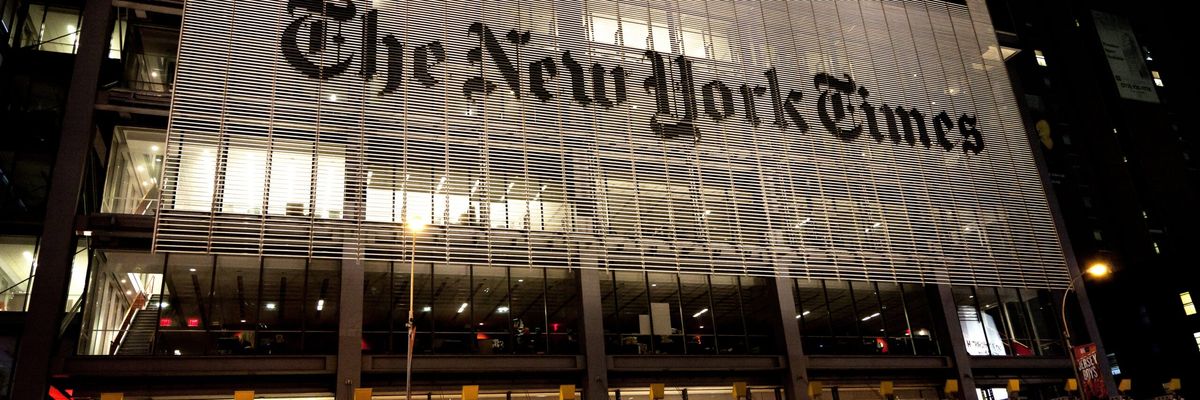New York Times opinion columnist Bret Stephens never hid his feelings about Israel, or the support that he believes Jewish Americans owe to the Jewish state. “Thank God I was born a Jew because I’d be a raging anti-Semite,” he once said, trying to explain his frustration with his fellow Jewish Americans for insufficiently, in his view, supporting Israel.
Indeed, that sentiment of unconditional support for Israel was on display last week when the Times published his lengthy defense of Israel’s bombardment of Gaza. His column made no mention of Israel’s evictions of Israeli Arabs from Sheikh Jarrah and argued that “the U.S. does not have a vital interest in creating a Palestinian state,” a view that runs counter to the assessment of then-CENTCOM Commander David Petraus’s 2010 Senate testimony in which he observed, “The conflict foments anti-American sentiment, due to a perception of U.S. favoritism for Israel.”
But Stephens, and The New York Times, did hide something else: Stephens has a glaring conflict of interest between his Israel-related commentary for the Times and his side gig, working for an organization “committed to the future of a U.S.-Israel relationship that safeguards the security of the Jewish State and connects future generations of Jews with our shared values.” That’s just one of the goals of the Maimonides Fund, a pro-Israel advocacy group where Stephens recently took up the role of editor-in-chief of Sapir, Maimonides’s “journal exploring the future of the American Jewish community and its intersection with cultural, social, and political issues.”
Stephens’ opining on U.S. support for Israel seems to pose an undisclosed conflict of interest with his outside role at a group dedicated to promoting the “U.S.-Israel relationship.” It also comes fresh on the heels of Times columnist David Brooks drawing a second salary from The Aspen Institute, a role that was funded by Facebook. Brooks ultimately resigned from his second job after Buzzfeed reported on the potential conflict of interest.
In March, the Jewish Telegraph Agency spoke with Stephens about his dual-roles at Maimonides and The New York Times. “Stephens said the Times is aware he’s editing Sapir and that he anticipated no conflicts,” reported the JTA.
“Given the format (a journal of ideas), style (long-form ‘think pieces’), themes (Jewish dilemmas of various sorts), and purpose (helpful ideas for Jewish leaders), I do not think there is any overlap with subjects I might plausibly cover for The Times,” Stephens said in an email to the JTA. “If there is, I would certainly disclose and discuss it with my editors.”
But that avoidance of a potential conflict of interest was short-lived. Stephens’ article last week concluded that “the goal of U.S. policy is to support Israel’s efforts to defang, deflate and ultimately disempower Hamas.” Neither Stephens nor The New York Times provided any disclosure that he was currently employed at an Israel advocacy group that “aims to connect Jews to their people and their heritage and to contribute to the vitality of the State of Israel.”
That seems like precisely the sort of “overlap” Stephens promised he would “discuss” with his editors. Either Stephens didn’t flag the potential conflict of interest or he did and the Times decided it wasn’t worth disclosing to readers.
















